
THE WORLD’S SECOND-HEAVIEST bird remains shrouded in mystery. Living in the shadowy world of northern Queensland’s ancient rainforests, the southern cassowary still sometimes surprises scientists and wildlife carers with unusual and rarely documented behaviours.
For example, there’s the question of diet. Although cassowaries mostly eat fruits and seeds, they occasionally add a little protein from fish, crustaceans and even roadkill, says Wren McLean, an ecologist and conservation scientist with the Rainforest Trust in Mullumbimby, northern New South Wales. “They are known to go fishing by lowering themselves into a freshwater pool and opening up their feathers. They allow the small fish to come in and eat their dead skin cells,” says Wren, whose cassowary survey work has been supported by the AG Society. “Then they close their feathers, step out of the water, shake themselves and pick up the little fish.”
Dr David Westcott, a CSIRO zoologist based in Atherton, Queensland, who has studied cassowaries for many years, agrees “the different strategies they use to get a balanced and non-poisonous diet are interesting”. Being almost entirely frugivorous (fruit-eating) can be difficult, because many basic nutrients are poorly represented, so cassowaries “have to really be quite clever”, he says. To this end, cassowaries have been seen eating road-killed bandicoots, while the remains of crabs and even small birds have been found in cassowary faeces.
Denne historien er fra September - October 2019-utgaven av Australian Geographic Magazine.
Start din 7-dagers gratis prøveperiode på Magzter GOLD for å få tilgang til tusenvis av utvalgte premiumhistorier og 9000+ magasiner og aviser.
Allerede abonnent ? Logg på
Denne historien er fra September - October 2019-utgaven av Australian Geographic Magazine.
Start din 7-dagers gratis prøveperiode på Magzter GOLD for å få tilgang til tusenvis av utvalgte premiumhistorier og 9000+ magasiner og aviser.
Allerede abonnent? Logg på
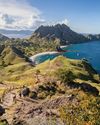
SULAWESI SENSATIONS
There are worlds within worlds and marvels untold waiting to be experienced on Indonesia's remote islands.
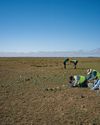
SEARCHING FOR AUSSIE DINOSAURS
Our understanding of where to find ancient life in Australia has been turned on its head by a new appreciation of the country's geology. Now the world is looking to our vast outback as the latest hotspot to locate fossils.
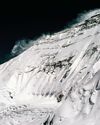
THE HARDEST NIGHT
The first Australian ascent of Mt Everest in 1984 is one of the great feats of mountaineering. Climbed by a small team semi-alpine style, with no bottled oxygen, via the Great (Norton) Couloir, it remains unrepeated 40 years later.
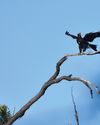
WEDGE-TAILED WONDER
The chance discovery of an eagle nest leads to an extended vigil observing normally hidden behaviours of one of nature's supreme winged marvels.
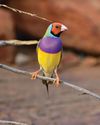
BURDENED BY BEAUTY
Northern Australia's Gouldian finch survives in huge numbers in cages around the world, but its wild population continues to struggle.
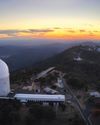
A TELESCOPE FOR A GOLDEN AGE
After a stellar 50 years as one of the country's major scientific assets, the AAT continues to play a major role in keeping Australian astronomy on the world stage.
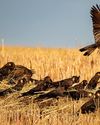
COCKY WHISPERING AT COOMALLO CREEK
This patch of remnant bush on the edge of the West Australian wheatbelt is a place loved by one of Australia's rarest bird species and the man who has studied the site for more than 50 years.

A PIONEERING PAIR
Louisa Atkinson and her mother, Charlotte, were among Australia's earliest authors, and pioneers in women's rights.

THE LONGEST WALK
Lucy Barnard is walking from Argentina to Alaska -the length of the Americas - on an extraordinary journey of endurance and adventure.
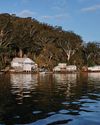
SECLUDED, BUT NOT ALONE
In an era of heightened social isolation, where many of us lead lonely lives, Dangar Island offers the chance to be part of a supportive, connected community.